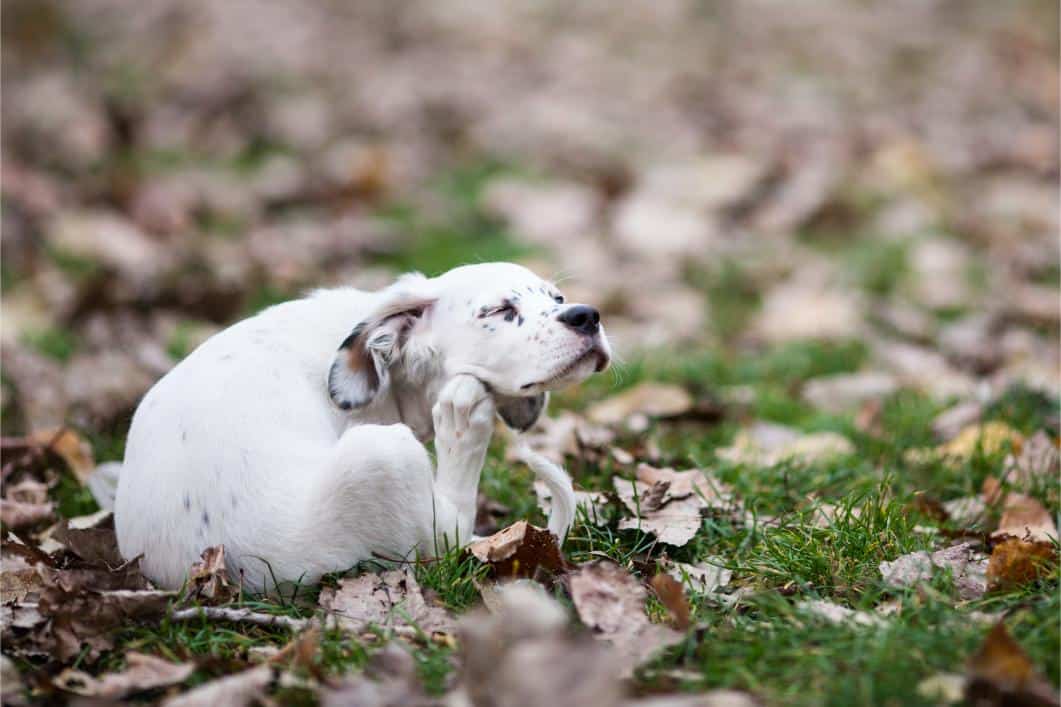Fall Allergies in Pets: Symptoms and Treatment Options

As the vibrant colors of fall take over Lafayette, Colorado, it’s important to be aware of how seasonal changes can affect our furry friends. At Coal Creek Animal Hospital, we know that fall allergies in pets can be a significant concern for pet owners. Here’s what you need to know about pet allergy symptoms, treating pet allergies, and making sure your pets stay healthy during the autumn season.
Recognizing Fall Allergies in Pets
Just like humans, pets can suffer from seasonal allergies. Autumn pet allergies often manifest in various ways, making it important to recognize the symptoms early. Common pet allergy symptoms include:
- Itching and Scratching: Excessive itching and scratching can indicate an allergic reaction.
- Red, Inflamed Skin: Look for areas of redness or inflammation, particularly on the paws, face, and belly.
- Ear Infections: Frequent head shaking or scratching at the ears can be signs of allergies.
- Watery Eyes and Sneezing: Respiratory symptoms such as sneezing and watery eyes are common.
- Licking or Chewing Paws: Pets often lick or chew their paws to alleviate discomfort.
Causes of Autumn Pet Allergies
Understanding the causes of seasonal allergies in pets can help prevent and manage them effectively. Some common allergens during the fall include:
- Pollen: Ragweed, mold spores, and other pollen types peak in the fall, triggering allergies.
- Mold and Mildew: Damp leaves and decaying vegetation can harbor mold and mildew, both potent allergens.
- Dust Mites: Increased indoor time means more exposure to dust mites.
- Flea Bites: Flea activity can surge in the fall, leading to flea allergy dermatitis.
Treating Pet Allergies
Once you identify that your pet is suffering from fall allergies, the next step is to explore effective treatment options. Treating pet allergies involves a combination of home care and veterinary intervention:
- Bathing and Grooming: Regular baths with hypoallergenic shampoos can help remove allergens from your pet’s coat.
- Flea Control: Ensure your pet is on a reliable flea prevention regimen.
- Medications: Antihistamines, steroids, or other medications prescribed by your veterinarian can alleviate symptoms.
- Dietary Supplements: Omega-3 fatty acids and other supplements can support skin health and reduce inflammation.
- Environmental Control: Minimize exposure to allergens by keeping your home clean, using air purifiers, and washing your pet’s bedding frequently.
When to Seek Veterinary Care
While home care can manage mild allergies, severe or persistent symptoms require professional intervention. At Coal Creek Animal Hospital, our team is equipped to provide comprehensive pet allergy treatment. Urgent and emergency care services are available for cases where your pet’s health is rapidly declining.
Preventive Measures for Fall Allergies
Prevention is always better than cure. Here are some steps you can take to minimize the risk of autumn pet allergies:
- Regular Cleaning: To reduce allergen build-up, keep your home and pet’s environment clean.
- Limit Outdoor Time: Limit your pet’s outdoor activities during peak pollen times.
- Frequent Grooming: Regularly groom your pet to remove potential allergens from their fur.
Ensure Your Pet’s Comfort This Fall
Fall is a beautiful time, but it can also be challenging for pets with allergies. Recognizing the signs of fall allergies in pets and knowing how to manage them is key to keeping your furry family members happy and healthy.
At Coal Creek Animal Hospital, we’re committed to supporting your pet’s well-being through every season. If your pet is showing signs of allergies, or if you need urgent and emergency care, don’t hesitate to contact us. Request an appointment online or call our office today to ensure your pet receives the best care.
